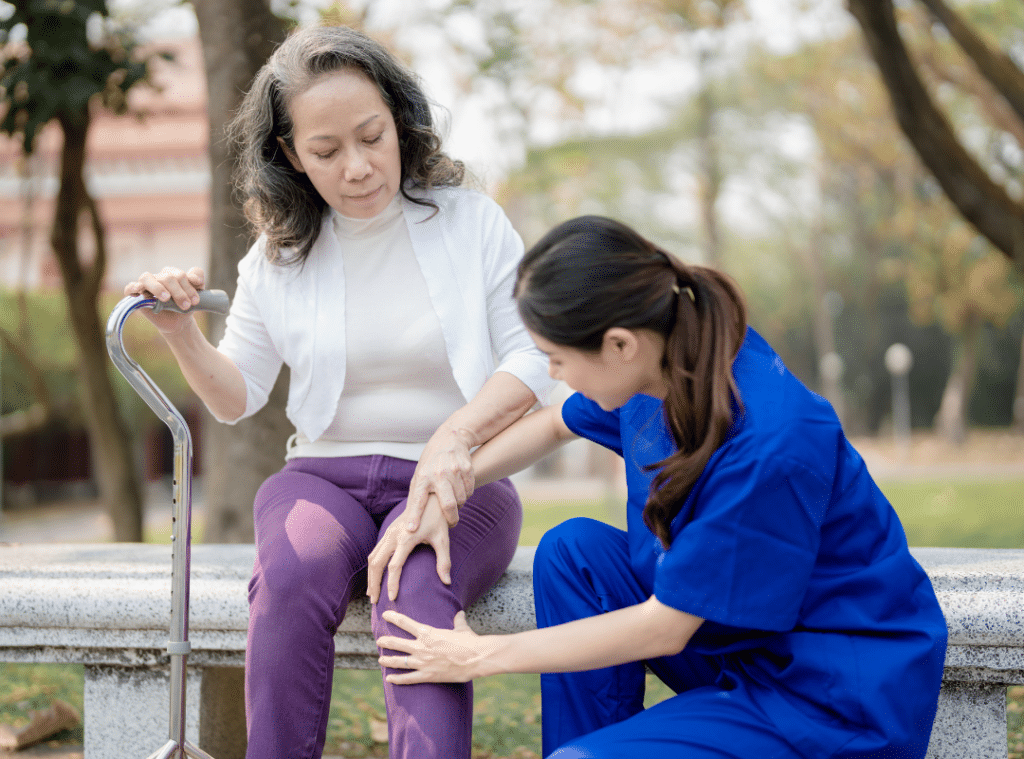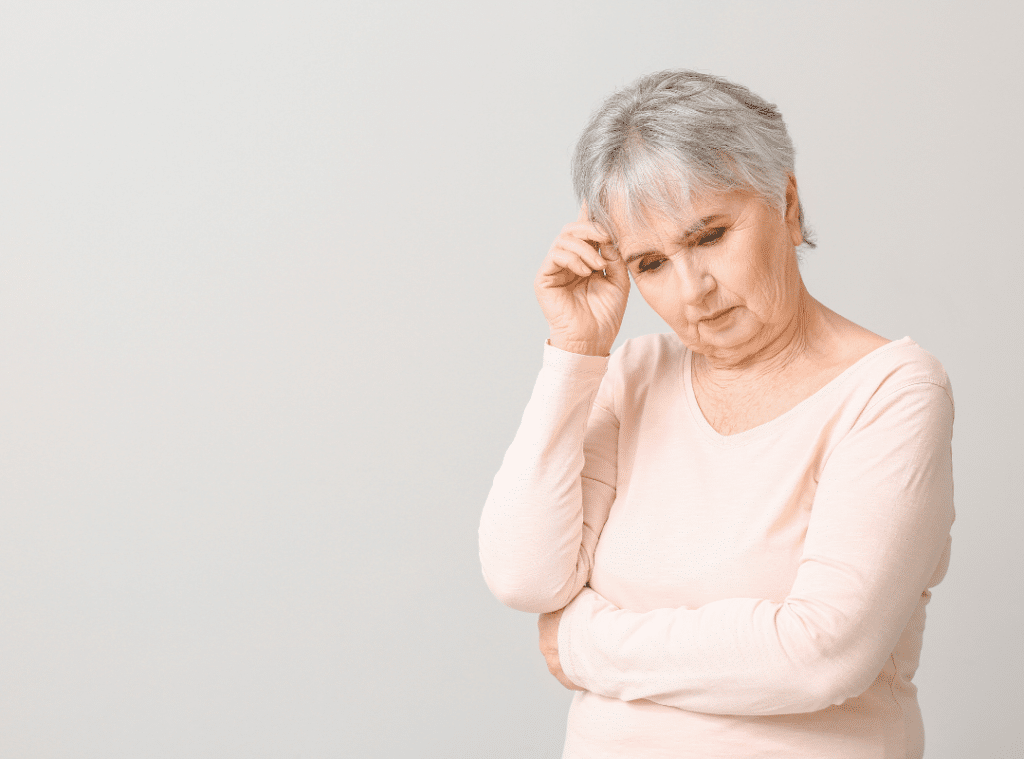As you age, balance problems can considerably hinder your mobility and independence. You might find that simple tasks, like walking or getting up from a chair, become increasingly challenging. At Westmont of Riverside, we understand that addressing these issues isn’t just about managing the symptoms; it involves a thorough approach that includes exercise, nutrition, and home safety modifications. But what exactly causes these balance problems, and how can you effectively tackle them? The answers may surprise you and lead to a more stable, confident lifestyle.
Balance problems in old age
As you age, balance problems can become a frustrating reality that affects your daily life.
It’s important to recognize that changes in your body, like altered walking patterns and improper stride, can lead to feelings of unsteadiness. You might experience dizziness, nausea, or a sensation of spinning, especially when shifting from sitting to standing or moving your head.
These symptoms can last anywhere from a few minutes to several days, making it essential to consult a healthcare professional if they interfere with your daily activities.
Understanding the symptoms is the first step toward addressing balance issues. You should consider how often you feel faint or experience blurred vision during these episodes.
Reflect on whether you’ve noticed a tendency to stagger or if you feel a fear of falling. Gathering this information can help you and your doctor determine the best course of action.
Additionally, inner ear disorders can disrupt signals to the brain, contributing to balance issues that many seniors face.
Don’t hesitate to contact professionals who can provide tailored exercises or therapies to improve your balance.
With the right support and strategies, you can regain confidence in your mobility and enhance your quality of life.
Problems with balance in old age
Balance problems in old age can greatly impact your daily life and independence. You might feel unsteady, leading to a fear of falling and limiting your activities. It’s essential to recognize these issues early on, as they can affect your mobility and overall quality of life.
Here’s a quick overview of common balance problems you might face:
| Symptoms | Impact on Daily Life | Suggested Actions |
| Dizziness | Difficulty walking | Consult a healthcare provider |
| Fear of falling | Avoiding social activities | Join a support group |
| Unsteady walking | Risk of falls | Engage in balance exercises |
| Blurred vision | Trouble with navigation | Schedule regular eye exams |
Addressing balance problems isn’t just about managing symptoms; it’s also about regaining your confidence. Engaging in exercises designed to improve your balance can benefit seniors experiencing lower back pain. Seek help when needed, and make necessary home modifications to enhance safety. Remember, you’re not alone in this journey, and taking proactive steps can lead to better mobility and a more fulfilling life.
What causes balance problems in old age
Aging naturally brings many changes to your body, and one of the most important is the increased likelihood of balance issues. Your inner ear plays a vital role in maintaining balance, and conditions like labyrinthitis can cause vertigo and disorientation, making it hard to stay steady.
Medications you take might also contribute to these problems; it’s critical to consult your doctor if you suspect this could be the case.
Moreover, underlying medical conditions such as diabetes, heart disease, and vision impairments can lead to disruptions in your balance. Sudden changes in blood pressure, often a concern as you age, can cause dizziness and unsteadiness.
Alcohol consumption can further affect your inner ear, leading to increased feelings of dizziness.
Understanding these factors empowers you to address your balance issues proactively. By recognizing the potential causes, you can discuss them with your healthcare provider, ensuring you receive the necessary support and treatment.
Taking steps to manage your health can greatly improve your mobility and overall quality of life, allowing you to engage more fully in daily activities and enjoy time with loved ones.
Questions on the balance and what they mean
If you’ve noticed changes in your ability to stay steady, you’re not alone—many older adults experience similar concerns. Understanding your balance can help you take the next steps toward improving it.
Start by asking yourself a few key questions. Do you sometimes feel unsteady or dizzy? These sensations can signal that something’s off.
Consider whether you ever feel like you’re spinning while standing still or have experienced episodes of losing your balance. These feelings aren’t just inconvenient; they can indicate underlying issues needing attention.
Blurred vision during these moments is another important signal. It might suggest that your body is struggling to maintain stability. Engaging in balance exercises can significantly improve your stability and overall mobility.
What causes unsteadiness in older people
Unsteadiness can be a frustrating experience for many older adults, often stemming from physical and medical factors. As you age, your body undergoes changes that can impact your balance. For instance, muscle weakness, joint stiffness, and changes in walking patterns can all contribute to feelings of unsteadiness.
Additionally, medical conditions like diabetes, heart disease, or vision problems can disrupt your ability to maintain balance.
Certain medications might also play a role in your unsteadiness. Side effects from anti-seizure drugs, antidepressants, or blood pressure medications can cause dizziness or lightheadedness. It’s important to consult your doctor about any medications you’re taking, as they can help you understand how these might affect your balance.
Inner ear issues, particularly those affecting your vestibular system, can lead to sensations of vertigo or imbalance. This can be exacerbated by alcohol consumption, which affects your inner ear’s functionality.
Understanding these causes can empower you to proactively improve your balance and overall mobility. Remember, you’re not alone in this; many people face similar challenges, and support is available to help you navigate them.

Treatment for weak legs in elderly
Weak legs can considerably impact your mobility and independence, making everyday tasks feel intimidating. To address this, several effective treatments can help strengthen your legs and enhance your overall stability.
First, consider engaging in targeted exercises, like leg lifts, squats, and balance training, which can be tailored to your ability. Working with a physical therapist is a great way to develop a safe and personalized exercise plan. They’ll guide you through movements that build strength and improve coordination.
Additionally, nutrition plays a significant role. Ensure you consume enough protein, vitamins, and minerals to support muscle health. Foods rich in calcium and vitamin D can help maintain bone density, essential for mobility.
Don’t forget the importance of hydration; staying well-hydrated helps with circulation and muscle function.
Finally, consider safety modifications at home—grab bars, non-slip mats, and proper footwear can prevent falls and give you confidence.
In your journey to overcome balance problems, remember that nearly one in four older adults experience a fall each year, which can lead to serious injuries. You can enhance your stability and confidence by incorporating targeted exercises, ensuring proper nutrition, and making home safety modifications. Don’t hesitate to seek help from a physical therapist for tailored strategies. At Westmont of Riverside, we are dedicated to supporting your journey towards better mobility. For assistance and resources, feel free to contact us at 951-697-2100. With these practical steps, you can reclaim your mobility and independence, making each day a step towards a safer, more active life.
How Do The Costs Of Moving Into A Quality Senior Care Community Compare With The Costs Of Staying At Home?Compare The Costs of Senior Living vs Staying at Home
Questions on Balance Issues in the Elderly
- How can the elderly regain balance?
Regaining balance in the elderly often involves exercises to improve strength, flexibility, and coordination, such as tai chi or yoga. Consulting a physical therapist can provide tailored balance training, and addressing underlying issues like vision problems or medication side effects can also help improve stability. - Why do I feel unsteady when I walk?
Feeling unsteady while walking can result from various factors, including muscle weakness, joint problems, or balance system disorders like vestibular issues. It’s important to consult a healthcare professional to evaluate potential causes and develop an appropriate treatment plan. - Why do I feel off balance but not dizzy?
Feeling off balance without dizziness is often linked to issues like inner ear problems, poor posture, or neurological conditions. Conditions like peripheral neuropathy or joint stiffness can also contribute, so it’s essential to identify the root cause with a thorough medical assessment. - What causes bad balance in the elderly?
Bad balance in the elderly can stem from age-related muscle and bone loss, chronic conditions like arthritis or diabetes, or side effects of medications. Vision impairment, vestibular disorders, or reduced physical activity can also play a role, highlighting the need for a multifaceted approach to treatment.








